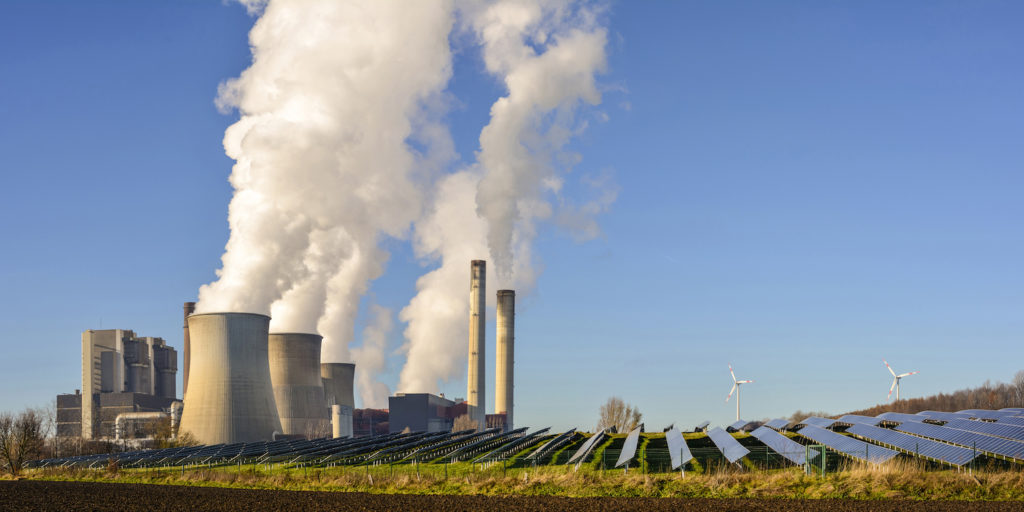The report issued by Germany’s Commission for Growth, Structural Change and Employment – the Coal Commission – after a marathon session on Saturday night ran to 336 pages. The headline news though is simple: Germany should decommission all its coal-fired power plants by 2038 at the latest.
By 2022 – under the terms of the plan – 12.5 GW of coal generation capacity will be cut from the grid as a first step, including 5 GW from lignite coal. According to the commission, that can be achieved in part by converting coal-fired power plants into combined heat and power (CHP) operations or by converting them to gas.
For each of the years 2023, 2026 and 2029, an assessment of the measures implemented will be carried out to consider security of supply, the electricity price level, climate protection, further development of EU state aid law and structural development in the areas affected.
In 2032, the commission and coal plant operators will decide if the remaining capacity can be phased out by 2035, rather than 2038.
Customers should be shielded
According to media reports, there was only one vote against the arrangement presented to the commission: that of Hannelore Wodtke, representative of the “Alliance for Welzow”, from Lausitz, where one of Germany’s largest coal mining sites is located.
Popular content
The Coal Commission agreed states with coal regions – North Rhine-Westphalia, Brandenburg, Saxony and Saxony-Anhalt – will receive financial aid for structural change, with details to be fixed in an ad-hoc law. The commission recommended the federal government provide €1.3 billion per year over 20 years.
In addition, the federal government will provide all states with €700 million per year over a 20-year period, and decommissioned areas should be prioritized for the further expansion of renewable energy capacity.
If the Coal Commission agrees, operators of coal-fired power stations can expect compensation through a “standalone agreement”. For power plants that have been built but are not yet in operation, a negotiated solution will be sought to keep them mothballed.
Private households and the economy should be shielded from rising energy prices and the commission considered a subsidy of at least €2 billion per year will be necessary to help fund network improvement costs. The commission said energy customers should not face a surcharge for the phasing out of coal.
The contents of the deal have now been published but are not binding. The Coal Commission will submit its final report to the federal government on February 1. Discussion and implementation of the agreement are then a matter for the politicians.
This content is protected by copyright and may not be reused. If you want to cooperate with us and would like to reuse some of our content, please contact: editors@pv-magazine.com.


By submitting this form you agree to pv magazine using your data for the purposes of publishing your comment.
Your personal data will only be disclosed or otherwise transmitted to third parties for the purposes of spam filtering or if this is necessary for technical maintenance of the website. Any other transfer to third parties will not take place unless this is justified on the basis of applicable data protection regulations or if pv magazine is legally obliged to do so.
You may revoke this consent at any time with effect for the future, in which case your personal data will be deleted immediately. Otherwise, your data will be deleted if pv magazine has processed your request or the purpose of data storage is fulfilled.
Further information on data privacy can be found in our Data Protection Policy.